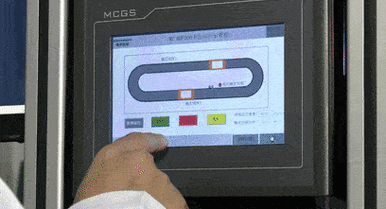Advancements in Fuel Saving Technology for Truck Fleets
Advancements in Fuel Saving Technology for Truck Fleets

In the realm of commercial transportation, fleet managers and truck drivers are constantly seeking innovative solutions to reduce operating costs and improve environmental sustainability. One key area where significant progress has been made is in fuel saving technology for trucks. These advancements not only benefit the wallet but also contribute to global efforts in reducing carbon emissions.
One notable development is in solid-state fuel catalysis, a process that enhances combustion efficiency by optimizing the fuel injection volume. By utilizing advanced catalysts, this technology ensures that the fuel burns more completely and at a higher octane rating, thereby increasing engine performance and decreasing fuel wastage. This not only reduces fuel consumption but also lowers the production of harmful pollutants.
Maintaining a reasonable speed plays a crucial role in fuel conservation. Most trucks have an optimal speed range where they operate most efficiently, consuming less fuel per mile. Drivers are encouraged to adhere to these speeds, avoiding both excessive acceleration and over-speeding, which can significantly increase fuel consumption.
Another technology gaining traction is the integration of GPS and advanced route planning systems. These tools enable drivers to plan their journeys more strategically, minimizing unnecessary detours and optimizing routes for lower congestion, thus reducing idling time and unnecessary fuel usage.
Diesel particulate filters (DPFs) and exhaust gas recirculation (EGR) systems are also playing a significant role in fuel efficiency improvement. DPFs trap soot particles while EGR reduces oxides of nitrogen by recirculating part of the engine's exhaust gases back into the combustion chamber.
Lastly, the integration of hybrid and electric powertrains is revolutionizing the industry. These vehicles rely on energy recovery systems that convert kinetic energy during braking to electrical energy, which can then be used for vehicle operation or stored in batteries. This not only reduces fuel consumption but also lowers engine wear, translating into long-term cost savings.
In conclusion, as technology continues to advance, so do the opportunities for truck fleets to save fuel and reduce their carbon footprint. By embracing these innovations and promoting driver awareness, the transportation industry can move closer towards a more sustainable future.
- Enhance Your Ride: The Ultimate Plas
- Enhance Your Fleet's Efficiency with
- Boosting Efficiency: The Advantages
- Boost Your Mileage: The Ultimate Car
- Boost Your Fleet's Efficiency with P
- Revolutionizing Efficiency: Solid-St
- Enhance Your Ride with Fuel Saving D
- Revolutionizing Efficiency: Explorin
- Boosting Fuel Efficiency with Plasma
- Maximizing Your Car's Fuel Efficienc


